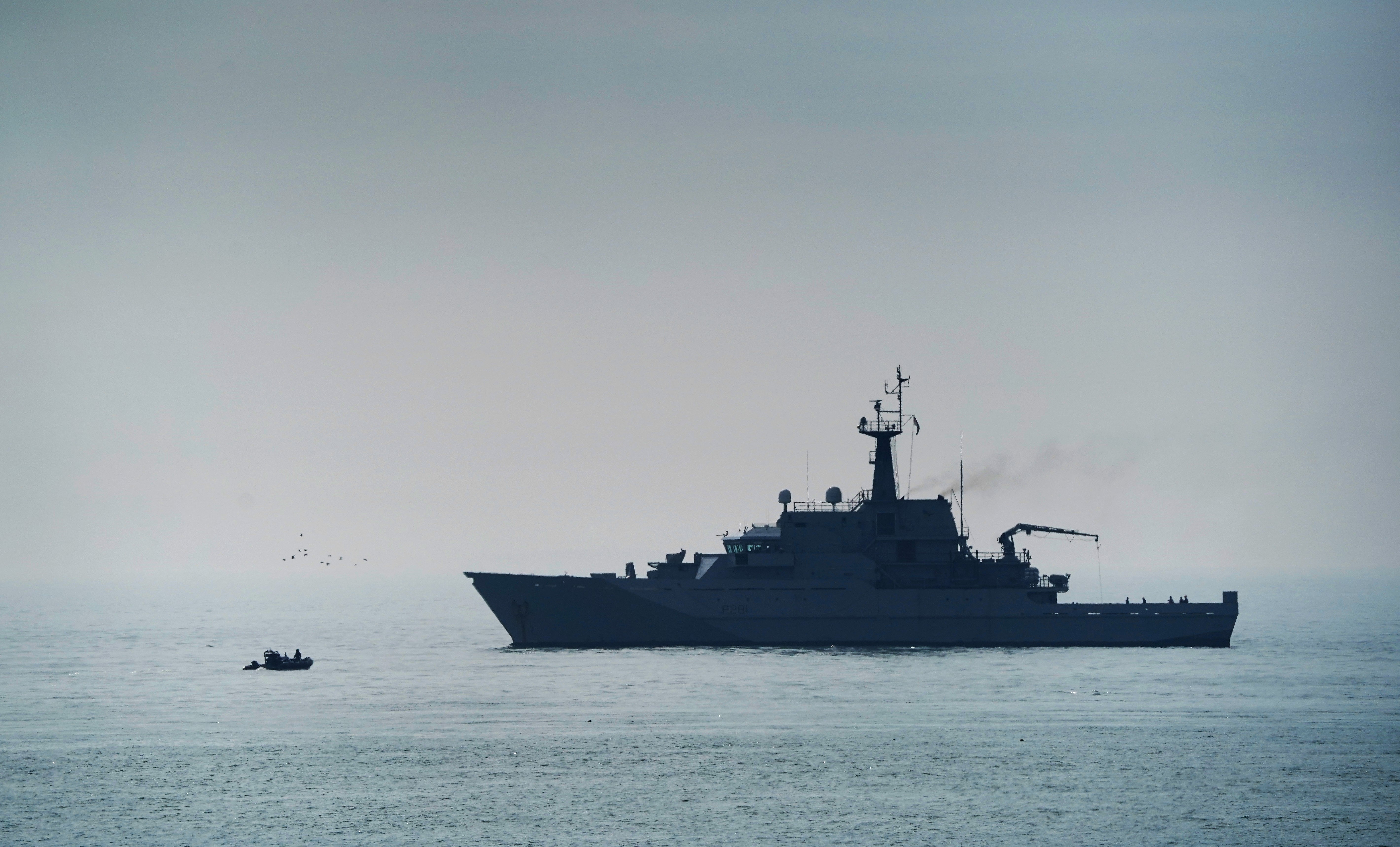‘Too soon to tell’ if Rwanda deal is deterring Channel crossings
Former Border Force boss Tony Smith says only time will tell but he believes the ‘early signs are encouraging’.

Your support helps us to tell the story
From reproductive rights to climate change to Big Tech, The Independent is on the ground when the story is developing. Whether it's investigating the financials of Elon Musk's pro-Trump PAC or producing our latest documentary, 'The A Word', which shines a light on the American women fighting for reproductive rights, we know how important it is to parse out the facts from the messaging.
At such a critical moment in US history, we need reporters on the ground. Your donation allows us to keep sending journalists to speak to both sides of the story.
The Independent is trusted by Americans across the entire political spectrum. And unlike many other quality news outlets, we choose not to lock Americans out of our reporting and analysis with paywalls. We believe quality journalism should be available to everyone, paid for by those who can afford it.
Your support makes all the difference.It is “too soon to tell” if the Government’s plan to send migrants to Rwanda is curbing Channel crossings, according to a former Border Force boss.
Tony Smith said only time will tell if the deal – which has been met criticism and is already facing legal challenges – will deter people from making the crossing to the UK but said the “early signs are encouraging”.
Although he stressed that the weather has “always been a factor” in affecting the number of migrant crossings taking place.
It comes amid a nine-day stretch between April 20 and April 28 where no crossings have been recorded, with reports of strong winds and choppy seas.
Two longer gaps of 16 and 13 days without crossings have already been recorded so far this year, prior to the Rwanda deal being struck.
The weather has always been a factor. But the Rwanda announcement and the passing of the new Bill into law yesterday won’t have escaped the migrants’ attention
On Thursday the Government’s Nationality and Borders Bill – dubbed the anti-refugee Bill by campaigners as it makes it a criminal offence to knowingly arrive in the UK illegally and includes powers to process asylum seekers overseas – became law.
Earlier this month Home Secretary Priti Patel signed what she described as a “world-first” agreement with the east African nation, which will see it receive asylum seekers deemed by the UK to have arrived “illegally” and therefore inadmissible under new immigration rules.
Meanwhile the Ministry of Defence (MoD) took control of tackling migrant crossings in the Channel.
Mr Smith’s book, Changing Borders – A Kingdom Unlocked, discussing his experience of half a century in border security and immigration, was published last month.
He told the PA news agency it was “too soon to tell” whether news of the Rwanda deal was acting as a deterrent but said: “The early signs are encouraging. Time will tell.”
The former Border Force director general added: “The weather has always been a factor. But the Rwanda announcement and the passing of the new Bill into law yesterday won’t have escaped the migrants’ attention.
“Given a choice between staying in France and going to Rwanda, I expect many would choose the former.”
Since the start of the year, at least 6,693 people have reached the UK after navigating busy shipping lanes from France in small boats, according to data compiled by PA.
That is more than three times the amount recorded this time last year (2,004) and over six times the figure for the same period in 2020 (1,006).
Typically there can be periods of several days or weeks without migrant crossings throughout the year, often depending on weather conditions.
The longest period without any crossings so far in 2022 was 16 days, between January 27 and February 11, PA analysis of Government figures shows.
But between January 27 and February 25 there was a period of 30 days which saw only one day of crossings – one boat carrying 11 people on February 12.
There were nine days without crossings between March 5 and March 13 and another 13-day gap between March 29 and April 10, shortly before the plans to send migrants to Rwanda were announced.
On April 13 and April 14, as the Government set out the plan and signed the deal, 651 and 562 people respectively arrived in the UK after crossing the Channel.
Then followed a period of five days between April 15 and 19 which saw consecutive crossings and a total of 863 people arriving in the UK.
The longest gap in 2021 without any crossings was 15 days, between February 7 and February 21.
There were no crossings for the first 20 days of 2020. That year, the longest period without crossings was 25 days, between February 8 and March 3, according to the figures.